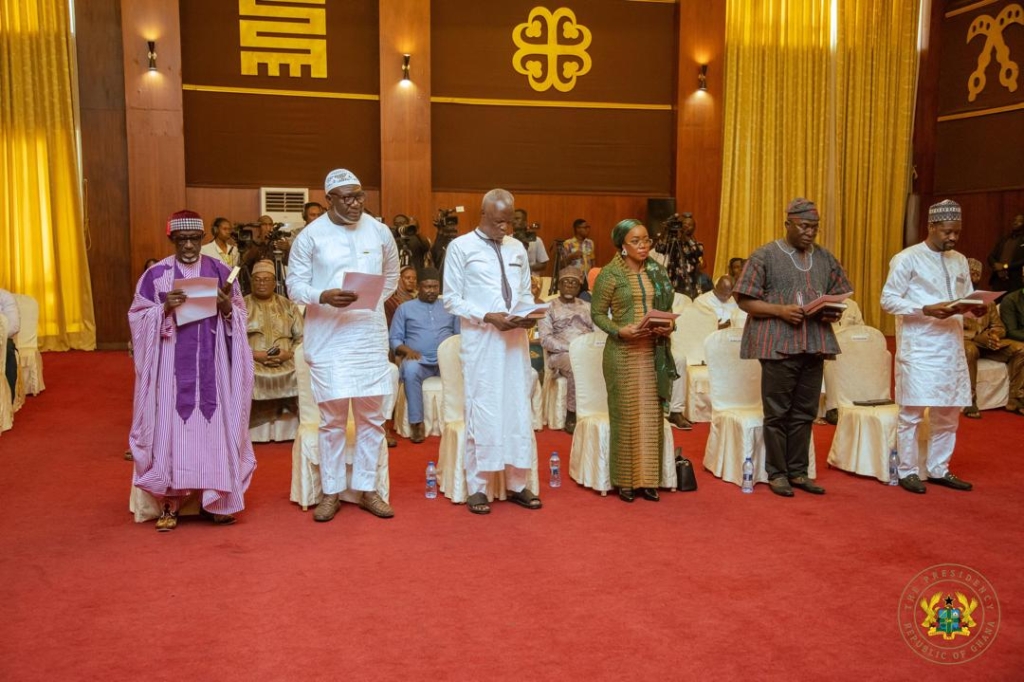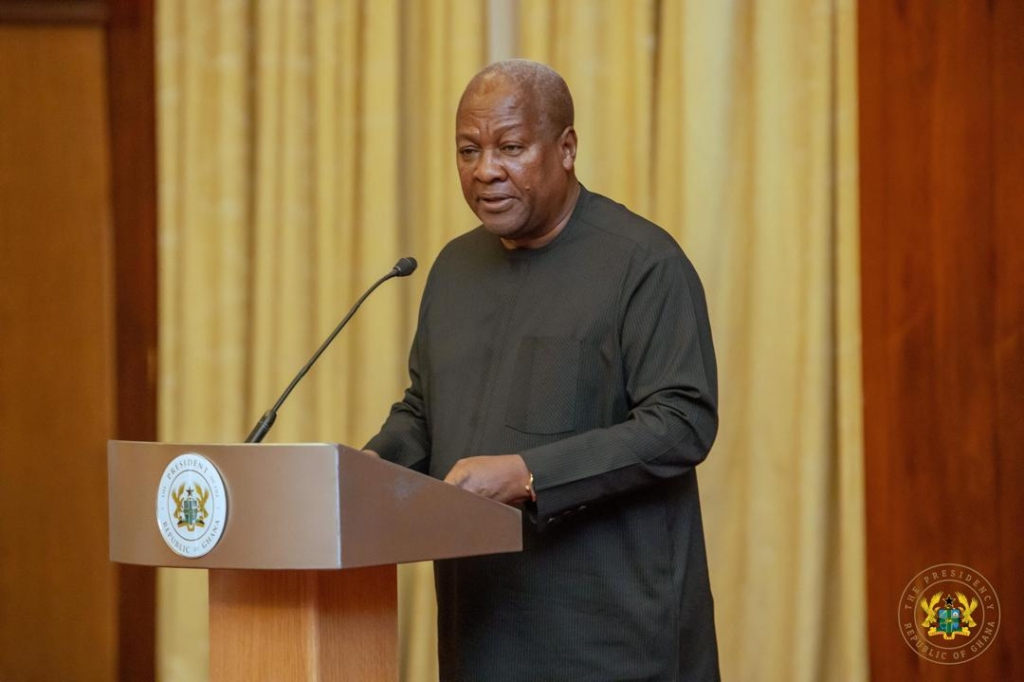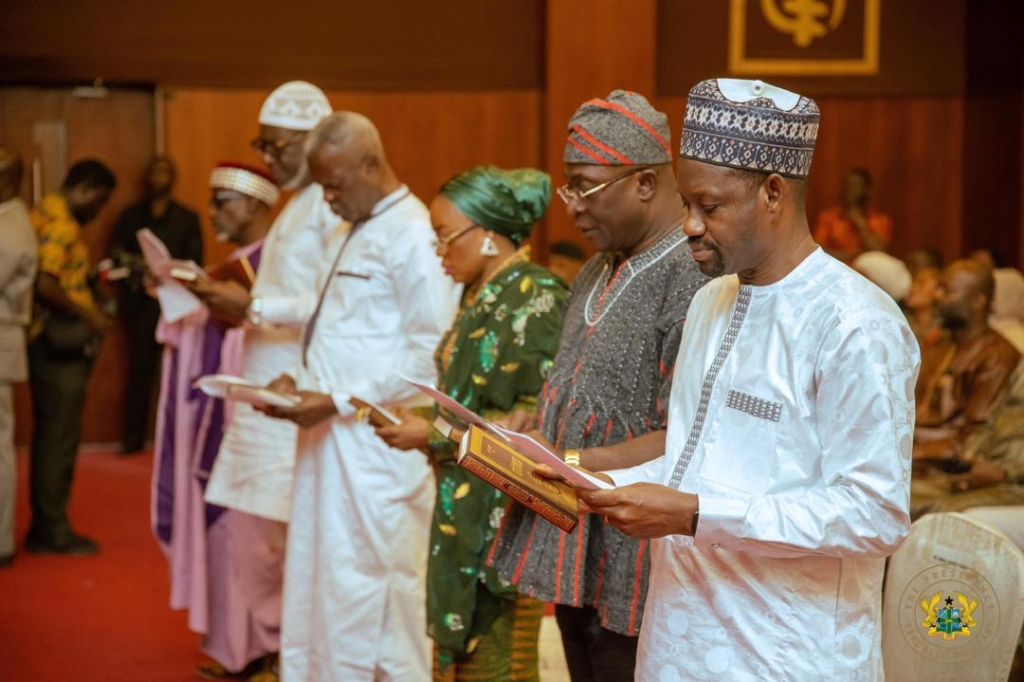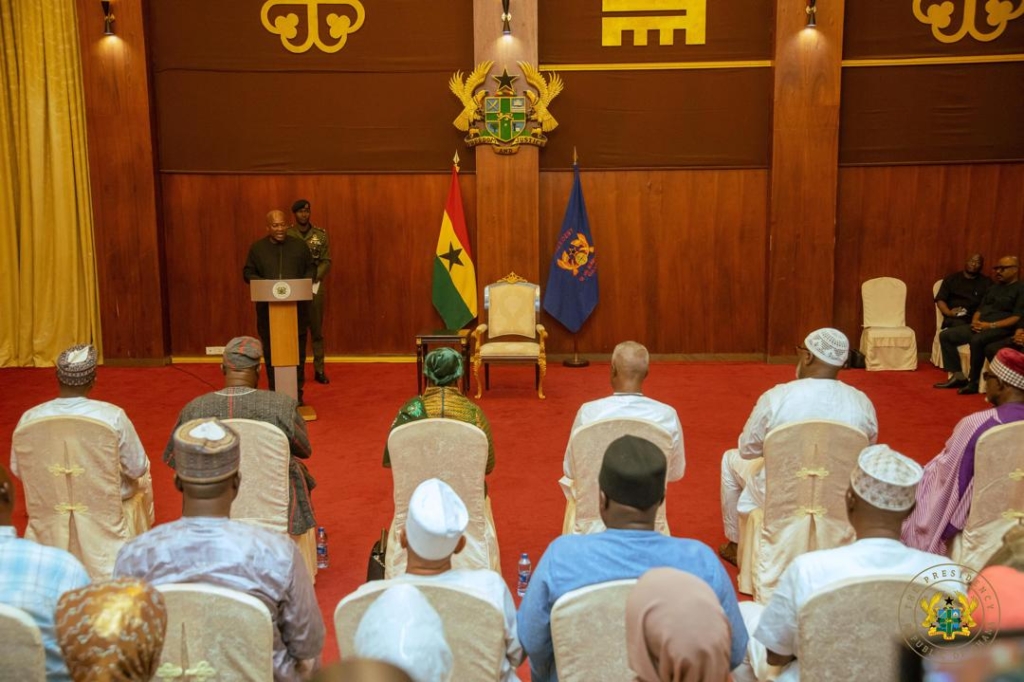President John Mahama has sworn in the newly constituted Hajj Board, chaired by Alhaji Ibrahim Tanko, with a firm call for precision, transparency and innovation in the management of Ghana’s annual pilgrimage.
Addressing the board during the swearing-in ceremony, President Mahama outlined five priority areas the team must focus on: early and predictable planning, transparency and accountability, safety and welfare of pilgrims, courtesy and discipline among officials, and strong stakeholder communication.

He urged the board to begin preparations for the next Hajj immediately to avoid the last-minute changes that have historically created anxiety for pilgrims. Clear schedules, registration procedures and cost structures, he said, must be announced early.
On transparency, the President stressed the need for all payments to pass through traceable and approved channels, warning against unofficial levies and hidden charges.
“Pilgrims and their families must know how their money is used,” he stated, adding that trust is the “currency of leadership.”

President Mahama also highlighted the safety, health, and general welfare of pilgrims as a sacred responsibility.
He called for improved coordination with the Ghana Health Service, the Ministry of Transport and Ghana’s Embassy in Riyadh to ensure safe travel, decent accommodation, adequate meals and efficient medical care, especially for the elderly, women and persons with disabilities.
He noted that the presence of a heart surgeon on the board this year would further strengthen medical preparedness.

The President further charged officials and volunteers to conduct themselves with courtesy, fairness and honesty to ensure that pilgrims feel respected throughout the process.
As part of efforts to modernise Hajj administration, President Mahama tasked the board to develop a Hajj Mobile Application, an integrated system that will allow pilgrims to register, verify their status, track payments and access travel information.

According to him, such innovation will reduce fraud, ease congestion, and improve long-term data planning.
He urged the board to maintain constant engagement with the Office of the National Chief Imam, regional imams, travel partners, agents and Saudi authorities, noting that “coordination prevents crisis and communication prevents rumours.”
DISCLAIMER: The Views, Comments, Opinions, Contributions and Statements made by Readers and Contributors on this platform do not necessarily represent the views or policy of Multimedia Group Limited.
DISCLAIMER: The Views, Comments, Opinions, Contributions and Statements made by Readers and Contributors on this platform do not necessarily represent the views or policy of Multimedia Group Limited.
Source: myjoyonline.com









